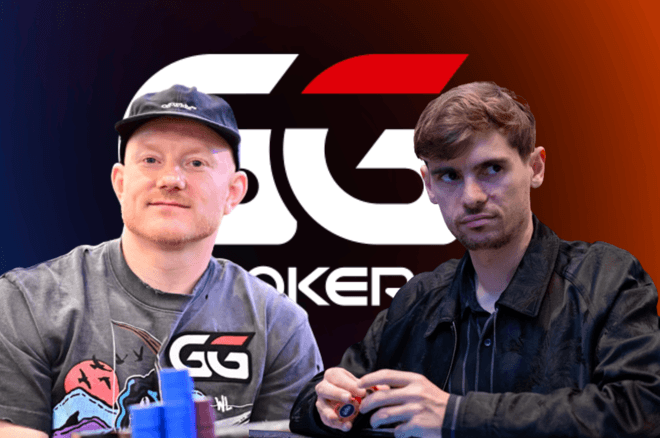In a legal decision concerning the responsibilities of gambling operators, a judge ruled that BetMGM is not legally obligated to intervene or prevent compulsive gambling behavior among its users. This ruling addresses the ongoing debate about the extent to which gambling companies are responsible for the actions of their customers, particularly in cases where individuals exhibit signs of addiction or compulsive gambling. The outcome of this case has significant implications for the gambling industry and for the legal framework governing the duty of care that operators must exercise towards their patrons.
Legal Implications of BetMGM’s Court Ruling on Compulsive Gambling
In a landmark decision that has sent ripples across the gambling industry, a judge has ruled that BetMGM, a prominent player in the online betting arena, is not legally obligated to intervene in cases of compulsive gambling. This ruling has profound implications for the legal landscape surrounding online gambling and raises important questions about the responsibilities of gaming companies.
At the heart of the matter lies the delicate balance between personal responsibility and corporate accountability. On one hand, individuals are expected to exercise control and make informed decisions about their gambling habits. On the other hand, there is a growing sentiment that companies like BetMGM should play a more active role in preventing compulsive gambling, given the ease of access and the addictive nature of their offerings.
The judge’s decision underscores the principle that, while BetMGM provides a platform for gambling, it is ultimately up to the individual to regulate their behavior. This perspective aligns with the broader legal framework that governs many aspects of personal autonomy. Just as a brewery is not held accountable for an individual’s decision to drink excessively, BetMGM has been deemed not responsible for a gambler’s inability to stop betting.
However, this ruling does not absolve BetMGM or similar entities from all responsibility. The industry is still bound by regulations that require them to provide fair games and protect users from fraudulent activities. Moreover, many gambling platforms, including BetMGM, have implemented measures to help users manage their gambling, such as setting deposit limits and offering self-exclusion options. These tools are designed to empower users to take control of their gambling habits before they escalate into a problem.
The judge’s ruling also invites a broader conversation about the role of technology in gambling. With the advent of mobile apps and online platforms, gambling has become more accessible than ever before. This increased accessibility means that individuals can gamble anytime and anywhere, which can potentially exacerbate issues of compulsive gambling. It is, therefore, crucial for companies to continue innovating in ways that promote responsible gambling while still providing an enjoyable experience for users.
Critics of the ruling argue that companies like BetMGM should be held to a higher standard due to the inherently addictive nature of gambling. They contend that these companies have a moral, if not legal, obligation to take more proactive steps in identifying and assisting compulsive gamblers. This perspective suggests that the industry should work more closely with mental health professionals and support groups to develop comprehensive strategies for addressing problem gambling.
In conclusion, the judge’s ruling that BetMGM has no legal obligation to stop compulsive gambling is a significant moment for the industry. It reaffirms the notion of personal responsibility while also highlighting the need for continued vigilance and innovation from gambling companies. As the industry evolves, it will be important for all stakeholders to engage in an ongoing dialogue about the best ways to balance individual freedom with the collective good. The decision may not be the final word on the matter, but it certainly sets the stage for a future where the lines between personal choice and corporate responsibility are more clearly defined.
Analyzing the Judge’s Decision on BetMGM’s Responsibility for Gambling Addiction
In a landmark decision that has sent ripples across the gambling industry, a judge has ruled that BetMGM, a prominent online betting platform, is not legally obligated to intervene in cases of compulsive gambling. This ruling has sparked a heated debate about the responsibilities of gambling operators and the protections that should be afforded to consumers vulnerable to addiction.
At the heart of the judge’s decision lies the principle of personal responsibility. The judge argued that while gambling operators must adhere to regulatory standards and promote responsible gambling, they cannot be held accountable for the personal choices of their customers. This perspective emphasizes the autonomy of individuals to manage their own behaviors, including the decision to gamble.
Moreover, the judge pointed out that BetMGM, like other licensed operators, provides tools and resources designed to help customers gamble responsibly. These include setting deposit limits, self-exclusion options, and access to support services for those struggling with gambling addiction. The availability of such measures suggests that the operator has taken steps to mitigate the risks associated with gambling, thereby fulfilling its duty of care to some extent.
Critics of the ruling argue that gambling operators have a moral, if not legal, obligation to do more to protect vulnerable individuals. They contend that the addictive nature of gambling, coupled with sophisticated marketing strategies and the ease of access to online betting, creates an environment where compulsive gamblers are at significant risk. In this view, operators should proactively identify and intervene when patterns of compulsive gambling behavior are detected.
However, the judge’s decision underscores the complexity of attributing responsibility for gambling addiction. It acknowledges that while operators can create an environment that encourages responsible gambling, they cannot control the actions of each individual. The ruling suggests that expecting operators to monitor and curb compulsive gambling behavior may be an overreach that infringes on personal freedoms.
Furthermore, the decision highlights the importance of informed consent. When individuals choose to engage in gambling, they do so with an understanding of the risks involved. The judge’s ruling implies that as long as operators make these risks clear and provide tools to manage them, they have met their obligations. It is then up to the individual to use these tools and make decisions that align with their personal well-being.
The ruling also has implications for the future of gambling regulation. It suggests that regulators may need to focus on enhancing the effectiveness of responsible gambling tools and ensuring that operators comply with existing standards, rather than imposing additional burdens on operators to police customer behavior.
In conclusion, the judge’s decision that BetMGM is not legally required to stop compulsive gambling is a significant moment for the gambling industry. It reaffirms the principle of personal responsibility and the limits of an operator’s duty of care. While it may not satisfy those who advocate for greater protections for compulsive gamblers, it does call attention to the need for a balanced approach that respects individual autonomy while promoting a safe gambling environment. As the industry continues to evolve, this ruling will undoubtedly influence the conversation around gambling regulation and the shared responsibility between operators and consumers.
The Impact of BetMGM’s Court Case on Online Gambling Regulations
In a landmark decision that reverberated through the corridors of the online gambling industry, a judge ruled that BetMGM, a prominent player in the digital betting arena, has no legal obligation to halt compulsive gambling. This ruling not only underscores the autonomy of online gambling platforms but also ignites a crucial conversation about the responsibilities these companies have towards their users.
The case in question centered around the argument that BetMGM should be held accountable for not implementing sufficient measures to prevent compulsive gambling behavior. However, the judge’s decision firmly established that while the promotion of responsible gambling is encouraged, it is not a legal requirement. This verdict has significant implications for the future of online gambling regulations, as it sets a precedent for how much intervention is expected from operators in the personal habits of their customers.
It’s important to recognize that the ruling does not absolve BetMGM or any other online gambling entity from moral responsibility. Instead, it delineates the boundary between legal duty and ethical practice. BetMGM, like many of its counterparts, does offer tools and resources to support responsible gambling. These include setting deposit limits, self-exclusion options, and providing information on problem gambling. However, the effectiveness of these measures is often debated, and the recent ruling suggests that the onus of gambling responsibly ultimately falls on the individual.
The decision has sparked a broader discussion on the role of online gambling platforms in safeguarding their users against the risks of addiction. Advocates for stricter regulations argue that companies should be doing more to identify and intervene when compulsive behavior is detected. They contend that the digital nature of these platforms, with their easy accessibility and immersive experiences, can exacerbate gambling problems, making corporate vigilance all the more necessary.
On the flip side, proponents of the ruling assert that personal accountability should not be overshadowed by corporate babysitting. They argue that adults have the right to make their own choices, and it is not the place of companies to police behavior to such an extent. This perspective emphasizes freedom of choice and personal responsibility, suggesting that while companies should provide the tools for safe gambling, they should not be held liable for individual misuse.
The impact of BetMGM’s court case extends beyond the immediate parties involved. It prompts a reevaluation of online gambling regulations and the balance between consumer protection and personal freedom. Regulators may now face increased pressure to clarify the expectations placed on online gambling operators, potentially leading to new legislation that better defines the scope of corporate responsibility in this digital age.
In conclusion, the ruling in favor of BetMGM’s lack of legal obligation to stop compulsive gambling is a pivotal moment for the online gambling industry. It challenges regulators, companies, and gamblers alike to reflect on their roles within the ecosystem. While it reaffirms the principle of personal responsibility, it also serves as a reminder that the conversation about responsible gambling is far from over. As the industry continues to grow, finding the sweet spot between regulation and freedom will be key to ensuring a safe and enjoyable experience for all involved.
Understanding the Boundaries of Online Casinos’ Duties to Compulsive Gamblers Post-BetMGM Ruling
Judge Rules That BetMGM Has No Legal Obligation to Stop Compulsive Gambling
In a landmark decision that has sent ripples across the online gambling industry, a judge has ruled that BetMGM, a prominent online casino, is not legally obligated to intervene in cases of compulsive gambling. This ruling has sparked a heated debate about the responsibilities of online casinos and the extent to which they should be expected to protect their customers from the potential harms of excessive gambling.
The crux of the matter lies in the nature of gambling itself—a pastime that, for many, is a harmless form of entertainment, but for others, can spiral into a destructive compulsion. The question then arises: should online casinos like BetMGM be the gatekeepers, actively preventing compulsive gamblers from indulging in behavior that could be detrimental to their well-being?
On one hand, the ruling acknowledges the principle of personal responsibility. Adults are expected to exercise self-control and make informed decisions about their own leisure activities, including gambling. The court’s decision reinforces the idea that individuals are ultimately accountable for their actions, and it is not the role of online casinos to police their behavior.
Moreover, the ruling underscores the practical challenges associated with monitoring and identifying compulsive gambling behavior. Unlike physical casinos, where staff might notice and intervene when a patron exhibits signs of problem gambling, online platforms lack the same level of personal interaction and observation. This makes it inherently difficult for online casinos to detect and manage compulsive gambling.
However, this is not to say that online casinos have no role to play in promoting responsible gambling. In fact, many platforms, including BetMGM, have implemented tools and resources designed to help players manage their gambling habits. Features such as deposit limits, time-outs, and self-exclusion options are all measures that empower users to set boundaries for themselves and seek help if they feel their gambling is getting out of control.
Furthermore, the industry is increasingly recognizing the importance of responsible gambling initiatives. These programs aim to educate players about the risks associated with gambling and provide support to those who may be struggling with addiction. By fostering a culture of responsible gambling, online casinos can contribute to the prevention of compulsive gambling without overstepping the bounds of personal responsibility.
The BetMGM ruling, therefore, should not be seen as a green light for online casinos to ignore the welfare of their customers. Instead, it serves as a reminder that while casinos have a part to play in promoting safe gambling practices, there is a limit to how much they can—and should—control individual behavior.
In conclusion, the boundaries of online casinos’ duties to compulsive gamblers are complex and multifaceted. While the recent ruling absolves BetMGM of legal responsibility to stop compulsive gambling, it does not absolve the industry of its moral obligation to support its customers. Online casinos must continue to develop and refine tools that encourage responsible gambling, while also respecting the autonomy of their users. As the digital gambling landscape evolves, finding the right balance between these objectives will be crucial for ensuring that the thrill of the game never comes at the cost of players’ well-being.Conclusion: A judge has ruled that BetMGM is not legally obligated to intervene or stop compulsive gamblers from betting on their platform. This decision implies that the responsibility for gambling behavior primarily lies with the individual gambler rather than the gambling service provider, under the current legal framework.
















+ There are no comments
Add yours